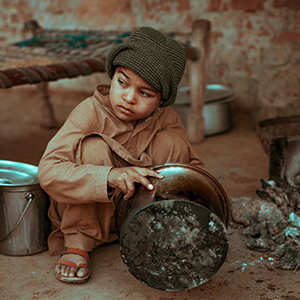
Common risk factors for diarrhoeal disease include:
- Poor hygiene practices (e.g. not washing hands)
- Poor sanitation (e.g. not having access to a clean toilet)
- Poor access to clean, safe water
- Food insecurity (i.e. not having reliable access to a sufficient quantity of affordable, nutritious food)
- Poor nutritional status
- A weakened immune system (e.g. as a result of HIV infection or cancer)
- Close contact with someone who is already infected but who isn’t showing signs of infection yet
- Not being immunised
In times of drought, when access to safe drinking water is compromised, children are at greater risk. The same goes for times when good hygiene practices are not maintained, e.g. when there’s less hand washing as a result of water-saving measures.
When there’s poor service delivery by government, sanitation is also affected, putting children at increased risk for diarrhoeal disease.
Reviewed by Kim Hofmann, registered dietitian, BSc Medical (Honours) Nutrition and Dietetics, BSc (Honours) Psychology. August 2018.
Image credit: Unsplash.com




 Publications
Publications
 Partners
Partners











